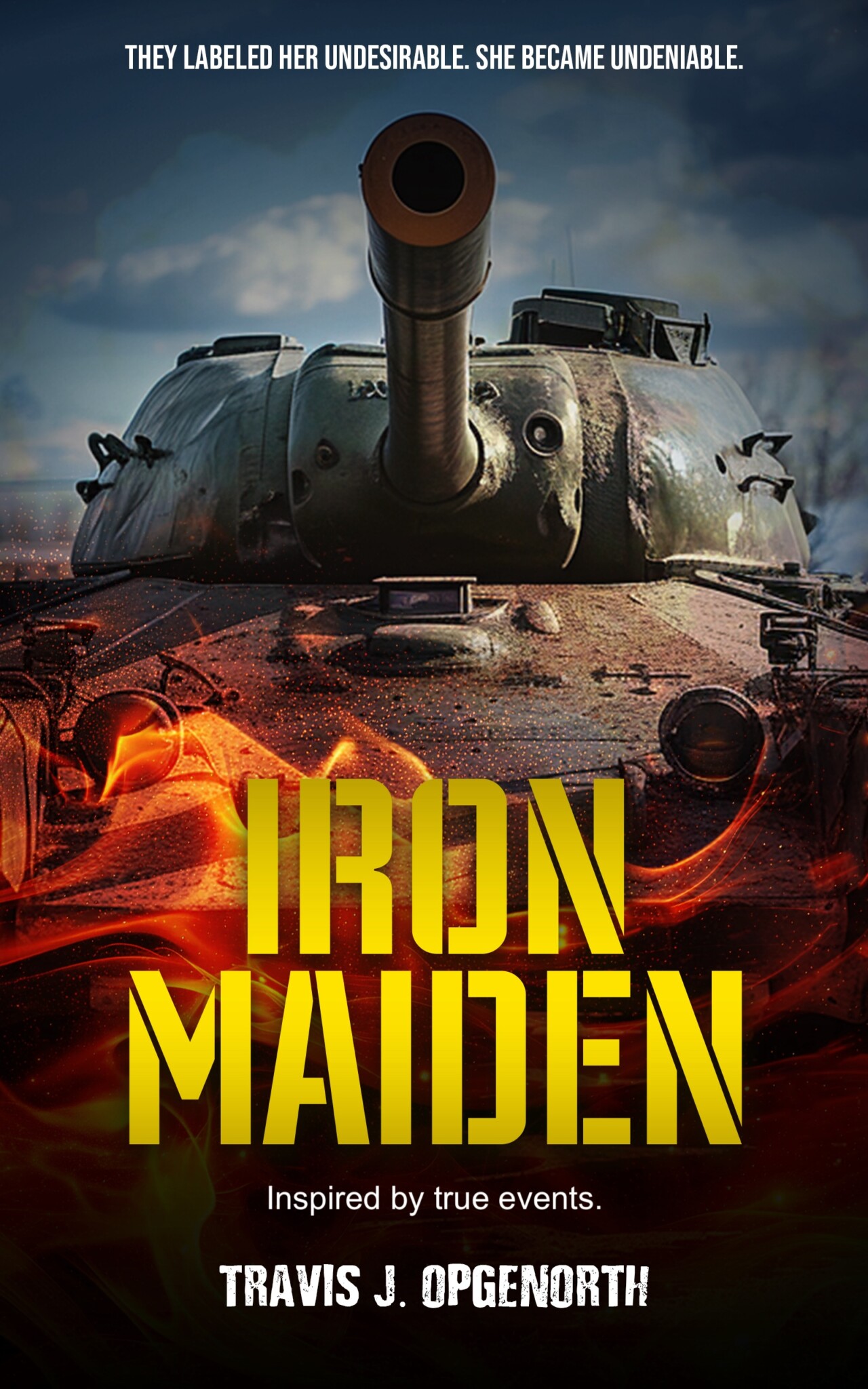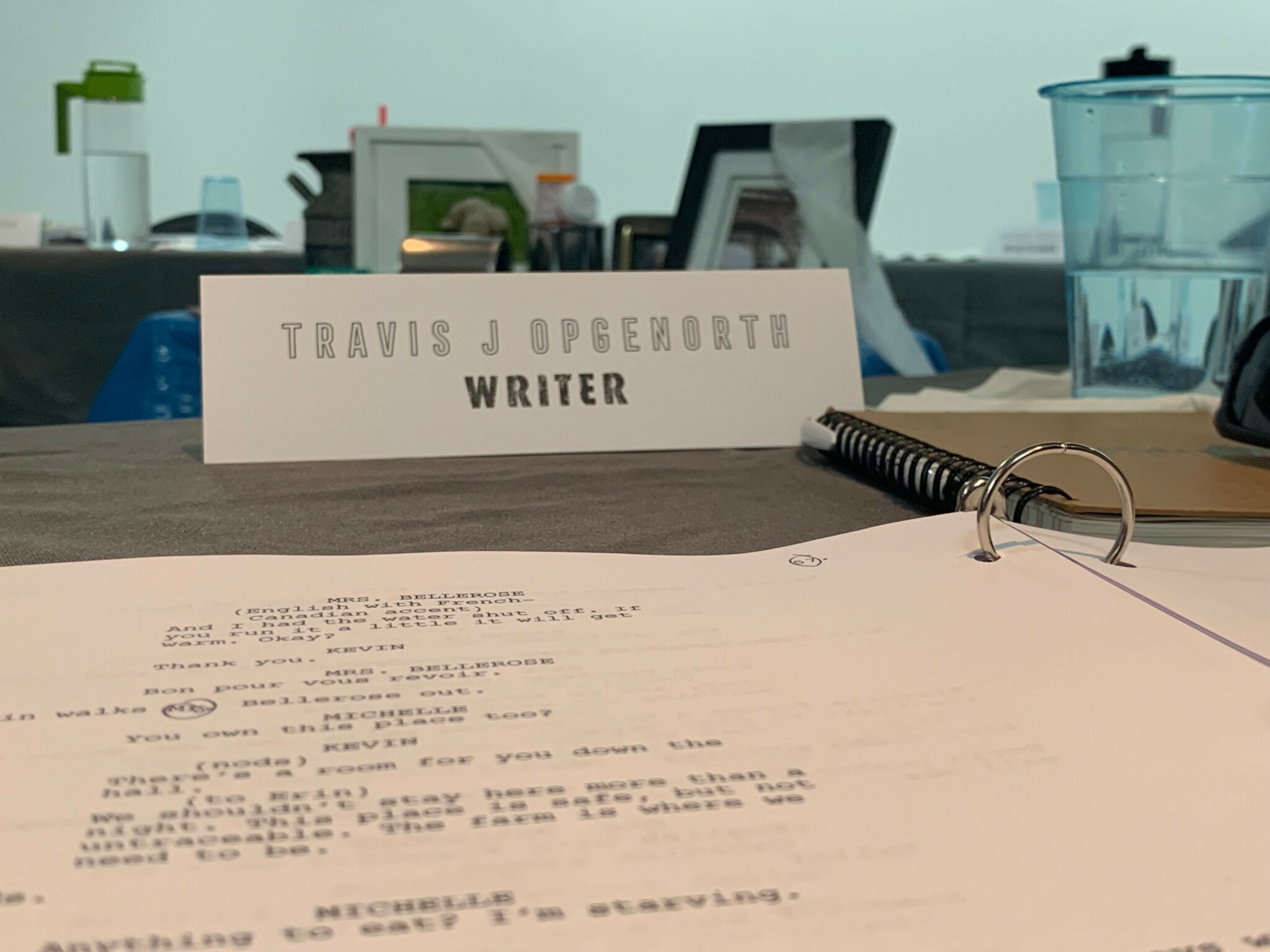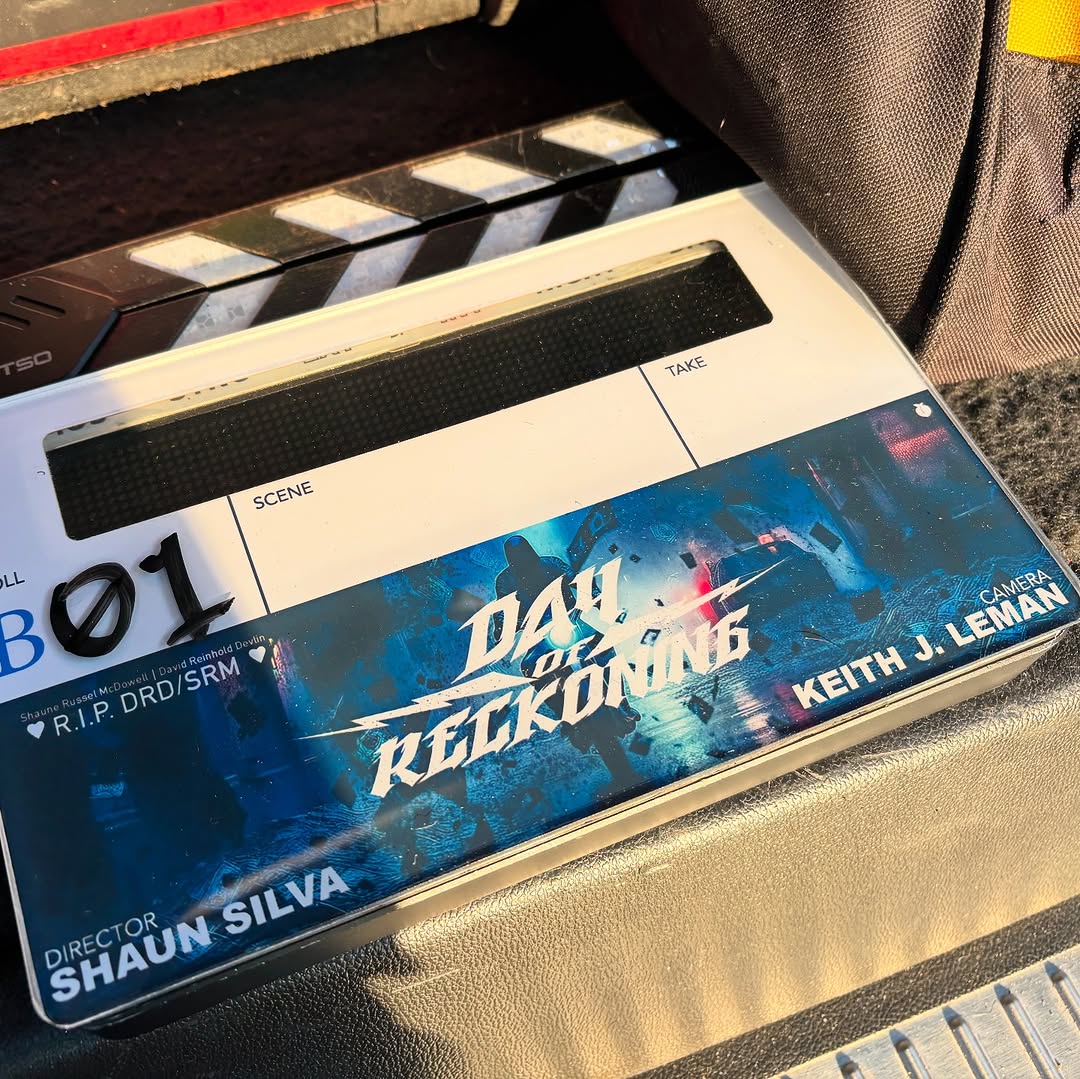We’re excited to introduce you to the always interesting and insightful Travis J. Opgenorth. We hope you’ll enjoy our conversation with Travis J. below.
Alright, Travis J. thanks for taking the time to share your stories and insights with us today. We’d love to hear the backstory behind a risk you’ve taken – whether big or small, walk us through what it was like and how it ultimately turned out.
At one point in my career, I had a literary manager interested in working with me. It was the first time I ever had a manager interested in me, and he was a big name at a big management company, so this was a big deal. This was a person who could set the trajectory of my career. He liked a script I wrote and wanted to know what I was going to write next, so I had been pitching him ideas for a screenplay, and I landed on this story that was set in Africa. I pitched the idea to the manager, but it wasn’t something he felt he could sell, so he told me to move on, but I couldn’t. I saw the story in my mind so vividly and clearly that I had to write it. I felt compelled to do it. And so I did. And I think the manager may have seen that as an act of disobedience, or an unwillingness to work with him, and he kind of ghosted me after that. But the script I wrote, which is called The Poacher, went on to win a $10,000 screenwriting fellowship. It also won an all-expenses-paid trip to the Sundance Film Festival. And through the referrals of people who read it, it landed in the hands of two producers. One of them ended up hiring me to write a true-story screenplay based on life rights he owned, and the other producer ended up optioning a different script I wrote and took that pretty far into development before the pandemic ultimately derailed it. Now, looking back, I don’t know how things would’ve turned out if I worked with that manager, and I feel like I may have burned a bridge there, but the script I wrote did exactly what a sample script is supposed to do, so I look at it as a win.

Awesome – so before we get into the rest of our questions, can you briefly introduce yourself to our readers.
I got into screenwriting because it seemed like a more viable career than being a novelist. I always loved writing. I wrote short stories in high school, and I had two very supportive teachers who helped me get two short stories published in a regional journal called The Menagerie. In college, while I was bouncing around through a few different majors, I took a screenwriting class and fell in love. I love the problem-solving that’s inherent to screenwriting, not only writing yourself out of a corner but also figuring out production logistics or budget constraints and how they affect a story. Book authors don’t have to worry about any of that. I also love the efficiency needed in a screenplay. It’s a true work of art to craft a vivid sentence in as few words as possible and then do that repeatedly for a hundred pages without getting repetitive or boring. And I love the collaboration that can happen in the screenwriting process, and the process of making a movie or TV show. Again, writing a novel is much more solitary.
To date, I’ve written 14 feature film scripts, nine TV pilot scripts, five TV spec scripts, and dozens of short scripts and short stories. I’ve had six scripts optioned, one has been produced, and a TV pilot I wrote has been adapted into a graphic novel that will be out later this year. Most of my scripts are action-thrillers or dramatic-thrillers, but one thing I really enjoy is writing a script based on true events because I also love history. One of the unique complications with writing a true-events story is that you have to figure out how to dramatize actual events to tell an interesting story without drifting too far from the truth. It’s like solving a puzzle where you have to use the pieces from the box to create a different picture, but one that still looks like the original. I get a real rush when I figure out how to do that seamlessly.
Actually, the scripts that I’ve written that I’m most proud of are all based on, or inspired by actual events. I’ve written about a female-led WWII tank crew, a school bombing, a group of nurses who were wrongfully sentenced to death, and a pair of serial killers who made a living selling cadavers to medical schools in 1820s Edinburgh. And my graphic novel Kingdom of God is Game of Thrones meets the New Testament but with a historical slant. Even when I’m not writing about true events, my scripts tend to have a real-world feel, as if they could’ve happened somewhere at some point.

Let’s talk about resilience next – do you have a story you can share with us?
Sure. I’d been writing for several years by the time 2019 came around. Toward the end of that year and into February of 2020 I had five screenplays that were optioned or under contract with several producers. So going into 2020 I was feeling pretty good about the odds of getting my first screenplay produced. But then the pandemic hit and one-by-one all of those projects were halted and the production companies released their option rights. One of those projects called Distortion came back to life in 2023. We had a director attached. We had an A-list actress who loved the script and was ready to get on board. Kingdom of God had found a publisher. A few months later the actors guild went on strike and that publisher had a bit of a scandal and imploded. Both projects were left in limbo and I was back to zero, again. It wasn’t until 2024 that things started to turn around again. Distortion was back in the mix. I set up a new screenplay called Ranger Creed with a new producer. Kingdom of God landed at a new publisher who’s very excited about it. And I sold my very first screenplay called Day of Reckoning to ESX Productions. It stars Billy Zane (Titanic), Zach Roerig (The Vampire Chronicles), Cara Jade Myers (Killers of The Flower Moon), Scott Adkins (John Wick: Chpt. 4), country music legend Trace Adkins, and it’s directed by Country Music Award-winning director Shaun Silva. That will be streaming in a few months.

How’d you build such a strong reputation within your market?
When I came to L.A., I didn’t have contacts in positions that could help me as a writer. I wasn’t landing writer assistant jobs or producer assistant jobs, and those are the coveted jobs for aspiring writers because those people will read your scripts and help you along if they like you. So I had to forge my own path, and the way I did that was to enter my scripts into as many screenplay contests as I could afford. Now, a quick caveat about screenplay contests. It’s become a cottage industry and 90% of the contests out there exist to make money, not to advance a writer’s career. There are only a handful that can have a meaningful impact, and only if you win them. Obviously, there are exceptions, but that’s a general truth. I did manage to finish near the top of two of the biggest, the Motion Picture Academy’s Nicholl Fellowship and the PAGE Awards, but I didn’t win, so my exposure was limited. What I did manage to do, was win several mid-level competitions repeatedly for several years in a row. Eventually, the people who ran those contests started recognizing my name, and they asked to meet me in person. Those meetings led to introductions with producers, which led to a few options, a writer-for-hire gig, and professional relationships that I still have today. But the biggest thing I did to build my reputation was that I became prolific. I spent 10-20 hours a week writing on top of full-time post-production jobs that had me working 50+ hours a week. I wrote two to three scripts a year, usually two features and a TV pilot. I always had new material that I was asking people to read. I was always working on incorporating notes into new drafts, which I would then turn around and ask people to read, and I always had new contest results to post on social media. Eventually, people began to notice that my work was good and there was a lot of it. Working writers I knew would pass my scripts around to people they knew. Contest organizers began requesting my scripts outside of their contests. And most of my opportunities came because I had a script that fit what a producer was looking for, and if I didn’t have that, I had something else to grab their attention. It’s that cliché saying, but “luck” is when opportunity meets preparation and I’ve worked hard to make sure I’m prepared.
Contact Info:
- Instagram: https://www.instagram.com/travisjopgenorth/
- Facebook: https://www.facebook.com/travis.opgenorth



